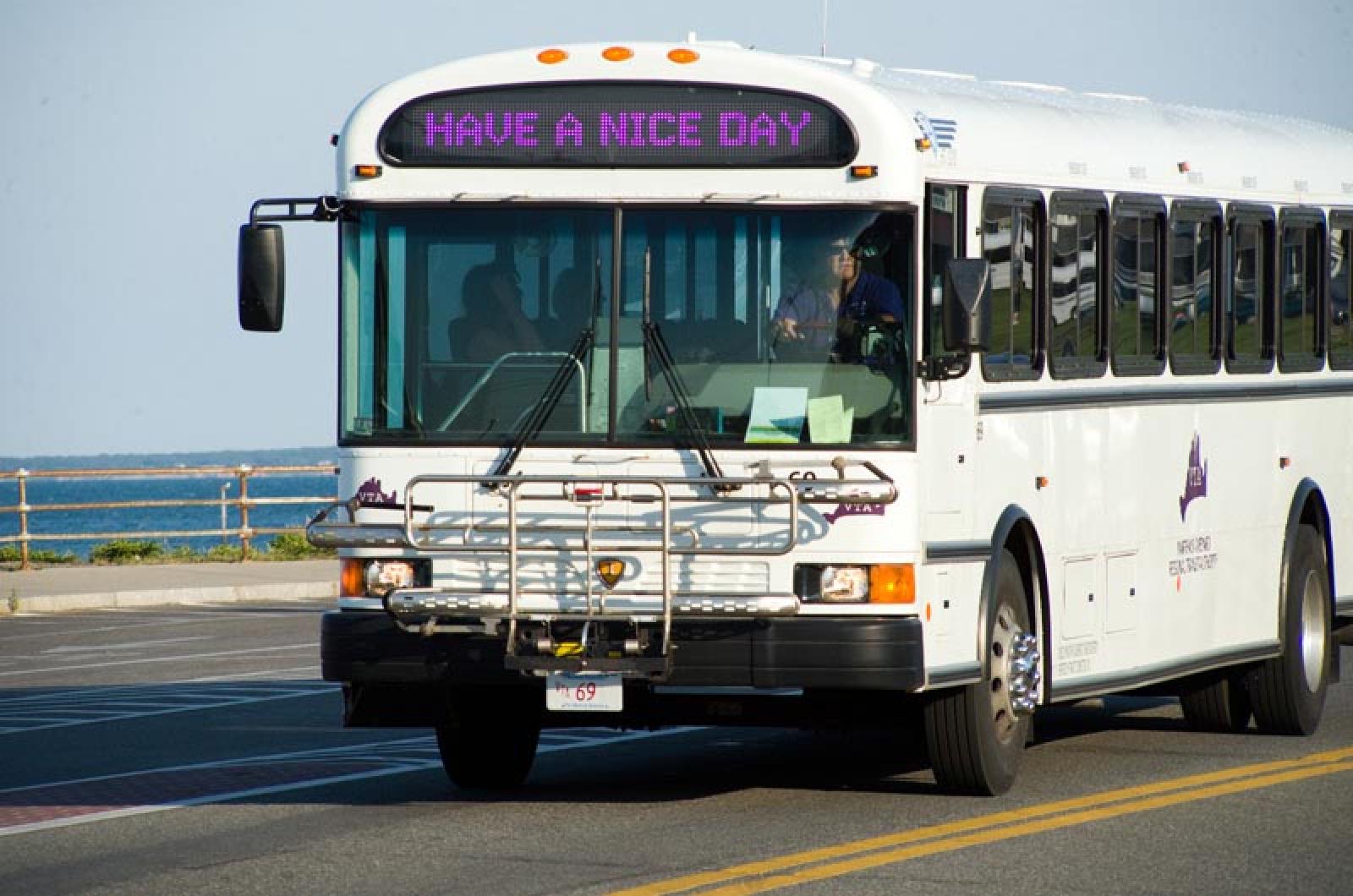Citing a long list of concerns that have gone mostly unanswered, Vineyard Transit Authority workers will vote Wednesday on whether to join the Amalgamated Transit Union.
The Vineyard is just one of three regional transit authorities in the state without union representation. Twelve of the state’s regional transit authorities are members of the ATU, a large labor union that represents workers in the United States and Canada.
Charles Ryan, the president of the local 1548 branch of the ATU, told the Gazette this week that employee concerns at the VTA have likely been ongoing for the last 10 years. The union began negotiating a contract with VTA employees in 2003, but those negotiations ended when members failed to ratify the contract by a one-year deadline.
“Since then they had like 37 issues that they brought up to the owner of the company and he addressed four of them and dismissed all the rest of them,” Mr. Ryan said. “When you’ve got that many issues it seems like there is a lot of stuff going on that maybe your manager doesn’t want to look at.”
Wednesday’s vote will determine whether the VTA employees join the local 1548 branch of the union, which represents Plymouth Brockton St. Railway Co., Brush Hill Transportation Co. and the Cape Cod Regional Transit Authority.
Mr. Ryan said that only a handful of VTA workers who were with the company when they began negotiating a union contract in 2003 were still employed by the company.
“I walked away and that was it until I heard from them probably three months ago,” he said.
Transit Connections Inc., the company that manages the VTA, did not respond to the ATU’s request in January to recognize a local union without a vote, Mr. Ryan said. The next step was for the ATU to file a notice with the National Labor Relations Board and announce a vote.
Votes will be cast by secret ballot at the VTA training room at the Martha’s Vineyard Airport on Wednesday between 6 and 9 a.m. and again between 2 and 5 p.m. A majority of the company’s 39 eligible voters would be needed for the measure to pass.
Mr. Ryan was optimistic that the measure would pass. He didn’t anticipate a repeat of what happened in 2003, when member expectations may have been too high, he said. And he believed that the remaining employees from that period would encourage the newer workers to support the measure.
Some of the issues that have been raised over the years relate to a wage cap of just over $21 per hour and a disciplinary process that some workers say is too rigid. One advantage of unions, Mr. Ryan said, is that they establish a grievance and arbitration process. Mr. Ryan added that the company has failed to make certain payments to its employees as required by federal law. While declining to comment further, he said those payments, if enforced by the union, would offset each worker’s $17 weekly union membership fee.
VTA administrator Angela Grant told the Gazette that company drivers are “agents on behalf of the VTA,” but report directly to Transit Connections. Ms. Grant said she was unfamiliar with the drivers’ specific concerns, but noted that the baseline salary for year-round drivers has increased over her 19 years at the company.
Ms. Grant dismissed the idea that unionization would lead to significant pay raises, since the VTA has limited federal and state funding.
“It is unfortunate that being part of a union is so expensive,” she said. But “if the drivers feel that that’s the route that they need to go, then that is their legal right to do so.”
Representatives from Transit Connections were not available for comment.
If the vote passes, the ATU would solicit a list of items that workers would like to see in a contract, and then begin negotiations with the company. It would also install two officers on the Vineyard to run the daily union operations. If the vote fails, VTA employees could seek membership again in one year.







Comments (8)
Comments
Comment policy »